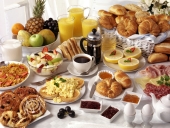


Judith Browning wrote:For those of you already raising chickens, you have something precious

Samantha Lewis wrote:I have been buying eggs this winter. About $10 per dozen here for organic free range eggs. I feel ok about it though. I am glad that folks who are making this a business are getting paid.
My hens and ducks stopped laying this winter. I could have supplemented them with fats and more protien but I just let them take a rest. Now spring is coming closer and they have started laying. I realize how much I missed having my own eggs!
I plan to bring on new hens this spring so I can keep my family in eggs year round going forward.

Josh Hoffman wrote:We did this for some time but we do not have an ice maker so we would make it in trays. I did not like having to use the ice bath.
I discovered that you can let the eggs cool enough to carton up after natural release, place in fridge and peel after a few days. I usually wait 3-5 days. They peel very easily and I do not need to worry about the ice.
Not a good solution if you are in a hurry. Ice bath is a must in those circumstances.

Josh Hoffman wrote:I have noticed that as well. I "boil" them in the instant pot.
I refrigerate them for a week, put a dozen in the pot, 1 cup water and pressure cook for 5 mins. I let natural release for 5 mins and then refrigerate for a 3-5 days before I peel. I think if you are in a hurry, you can put them in an ice bath but I hate being in a hurry. We typically boil and pickle our excess eggs.

Coydon Wallham wrote:It was simply a study on Asian (I think it was specific to China but don't recall for sure, or perhaps Korea or Japan?) eating habits among the aged. The claim was that it was a cultural norm for elders to only eat one meal per day, and that people in this culture were among the most long lived on the planet. The study showed a strong correlation between longevity and those that held to this norm. I chalked it up to being the wisdom one of the most ancient, ongoing cultures, and it seems to fit with the more benevolent science-based speculation I've encountered on the subject.

Kim Wills wrote:Well... I agree and I disagree. Sure we store excess calories that our bodies can use if needed. But just because we can survive a mini-famine doesn't mean we'll be at our best or not have negative consequences if that state goes on for too long. And I have nothing against fasting, for most people. I know there are some benefits.
But there is also such a thing as "overweight but undernourished". People can be overweight or obese but be vitamin or mineral deficient; they may not look like they're wasting away, but in a small way, more people are than we'd think. Someone who lives on processed foods, fast foods, microwave meals, etc, can quickly acquire excess fat but not have enough nutrients. In any case (calorie deficit or nutrient deficit) our bodies will take what it needs from our own bodies (including protein, calcium, whatever). Many people think that if they go without food their body will start burning all its fat, and that's it. Stop eating and lose weight. But that comes with invisible costs, including eventual "starvation mode" where they'll start retaining fat (if it's a very long time of undereating).

John Weiland wrote:As others weigh in, I'd like to possibly add the question of where the notion came in that breakfast is "the most important meal of the day".
Kim Wills wrote:Supposedly humans need 1600 calories even if laying in bed all day. Many people eat less than that.

